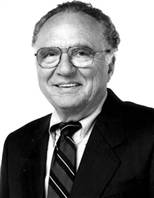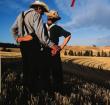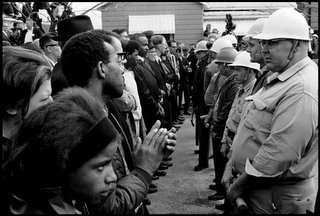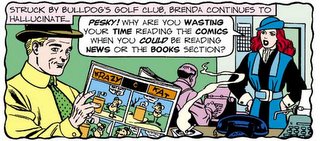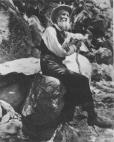Two Ruths to Remember
Ten Cents A Dance
That's what they pay me
Gosh how they weigh me down.
-- from the Ruth Etting album "Ten Cents a Dance," Living Era, 1926
It would be easy to fill this column with “Ruths.”
I could linger on the likes of Ruth Benedict the path-breaking anthropologist, Dr. Ruth the diminutive Smasher of Sex Shams and Shames, the incomparable Ruth Etting quoted at the head of this piece, and Ruth Gordon, the great actress who once profoundly asked: “Why should ruts be so comfortable and so popular?” (Why, indeed?)


But the Ruths I sing about, or at least mumble in praise of today, are Ruth Stone (on the left) and Ruth Lilly (on the right).
These Ruths have had a recent splash of ink in the papers and 30 second news spots on the tube. Their lives and contributions, however, are tied to something deeper and more meaningful than the media’s attempt to freeze a moment of the passing parade. They have lived long lives touched, guided, dominated, suffused, given over to, and enriched by a love for the consuming and creation of poetry.
Ruth Stone is a poet. She is this year’s winner of the National Book Award for poetry, but she is not, as one account reported, “a sweet old lady.” As Dinita Smith notes it in her New York Times profile, “There are words in Ms. Stone's poems that cannot be printed in this newspaper, even for art's sake. The words are not written for effect, they are there because of a brutal honesty.”
Maybe not “sweet” then, but there’s no reason to avoid “old” in descriptions of Ruth Stone. She’s 87. And certainly the “brutal honesty” stands. Here are a few lines from the National Book Award-winning volume, In the Next Galaxy (Copper Canyon Press):
"Tied a silk cord around his meat neck
and hung his meat body, loved though it was,
in order to insure absolute quiet,
on the back of a rented door in SoHo."
Tough stuff, no? Tougher yet when you know that this poem, "The Electric Fan and the Dead Man (or the widow as a useful object toward the end of the century)," is about her husband who committed suicide in 1959. Stone calls her husband "Serial-killer of my days," in another poem, "March 15, 1998."
Unsentimental, unflinching. These hard memories are one source for her art, a gash of memory never to heal, underlining the constancy of a great poet to her art. Sharon Olds, a friend and renowned poet says, "It's as if she hasn't heard that you're supposed to sugar it up."
It seems safe to say that one “R. Lyly” was thrilled to see four of her poems published by the New York Times in 1939. One of those poems included the lines:
“Secure in plush upholstery
I wink a torpid eye
and note above the plaudits
the needle of your sigh.”
Read those lines again. If you tasted sugar in the first reading, you’re certain to find bitterness in a second sampling.
This poem, with its hint of Emily Dickinson, has been attributed to Ruth Lilly, the billionaire Indianapolis philanthropist. Last month this Ruth bestowed a gift of $100 million on Poetry.
Poetry is the oldest and the most prestigious poetry magazine in the country. It has published poets of international importance continuously since its founding in 1912. Journals and magazines of poetry come and go, foundering after running against financial rocks that are very real, not symbols. Even a journal with the reputation and history of Poetry continues to exist through the kindness of friends and the hard work of volunteers.
Many a wag has used the line over the years that only one letter spells the difference between “poetry’ and “poverty.” Poetry has scrambled to survive for decades. It operates out of two small, donated offices in the basement of the Newberry Library in Chicago. The magazine pays the poets it publishes only slightly more than the “Ten Cents a Dance” Ruth Etting plaintively croons about in her signature (poem) song. The going rate at Poetry? Should a contemporary Will Shakespeare show up with a fourteen-line sonnet today, he could walk away with 28 bucks in his breeches.
Now, with intelligence and generosity unheard of since the Medici, Ruth Lilly of Indianapolis, a poet four times rejected for publication by Poetry, has demonstrated to all a love for a form of expression that dates back at least 3000 years. Are corporate and government leaders paying attention? The arts starve in this country. While Americans' minds grow obese with trivia, the arts, the spirit sources of curiosity and imagination, shrink from the anorexia of neglect.
Finally, did I mention that Ruth Lilly, like Ruth Stone, is also eighty-seven years of age? Or that Ruth Stone also grew up, albeit in very different circumstances, in Indianapolis, Indiana?
It’s wonderful to imagine these two Ruth’s, sitting together somewhere, talking of their life paths--lives so very different in details yet so alike in their passion for poetry. I like to think of them discussing and laughing about the opening lines of Ruth Stone’s poem, “1941":
I wore a large brim hat
like the women in the ads.
How thin I was: such skin.
Yes. It was Indianapolis;
a taste of sin.


